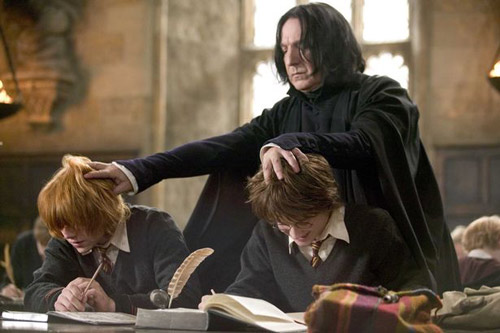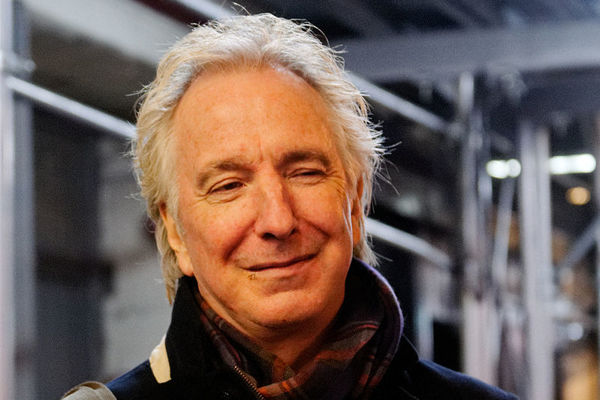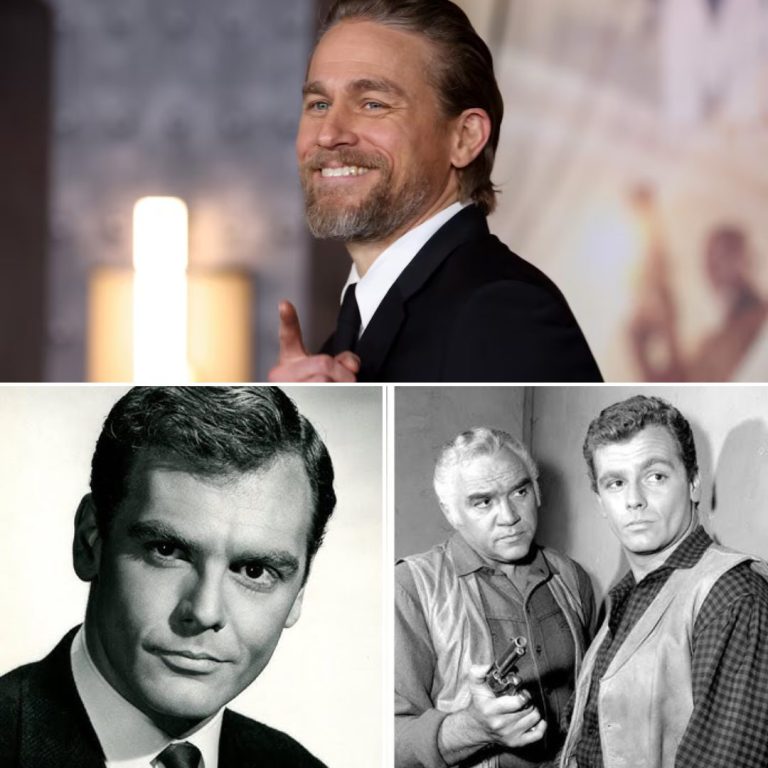Alan Rickman was more than just an actor. He was a presence — commanding, elegant, unforgettable. Best known to many as Professor Severus Snape in the Harry Potter franchise, Rickman’s career spanned decades and genres, filled with characters who weren’t just performed, but lived through him. Yet behind the scenes, behind the deep voice and sharp gaze, was a man carrying a quiet and devastating secret: he was dying.
In January 2016, fans around the world were blindsided by the news of his death. It didn’t make sense — Rickman had continued working, appearing in films and doing voice work as if nothing were wrong. That’s because, for most people, nothing seemed wrong. But privately, Rickman had been battling pancreatic cancer. He was diagnosed in 2015, just months before his death. In a world where celebrity illnesses often become headlines, Rickman made a different choice: he told only a small circle of friends and family. The rest of us had no idea. And that’s exactly how he wanted it — not out of pride, but humility. He didn’t want attention. He didn’t want sympathy. He just wanted to keep going.
That quiet dignity defined Alan Rickman from the very beginning. Unlike most actors, he didn’t follow a traditional path into show business. In fact, he started out as a graphic designer, only deciding to pursue acting seriously in his 30s — an age when many already have their careers locked in. But Rickman was never one to follow the crowd. He trained at the Royal Academy of Dramatic Art (RADA) and began building his career on stage. His breakthrough came in 1988, when, at 41, he stunned audiences with his role as Hans Gruber in Die Hard. It was rare for an actor to debut in Hollywood so late — and even rarer to do it so brilliantly.
From there, the roles kept coming, and so did the praise. Whether he was playing a villain, a romantic lead, or a tortured soul, Rickman brought complexity, intelligence, and emotional weight to every character. He had a way of making even the coldest roles feel deeply human. That’s what made his portrayal of Severus Snape so powerful — it wasn’t just the sneers and stares. It was the pain, the guilt, the love buried underneath. When we learned the truth about Snape, we cried — and that was because Rickman made us feel it.
But the most remarkable parts of Alan Rickman’s life happened away from the camera. For over 50 years, he was devoted to one woman: Rima Horton, a fellow student he met when they were teenagers. They spent their entire adult lives together — quietly, lovingly, far from the glare of the spotlight. They married in 2012, after nearly four decades of being each other’s constant. There were no tabloid scandals, no drama. Just two people who grew up together and never let go. In an industry fueled by image and fame, their relationship was a rare and beautiful truth.
Rickman also gave generously — not just with money, but with time, mentorship, and kindness. He supported charities, stood up for causes he believed in, and helped young actors find their voice. He mentored, encouraged, and made people feel seen. Colleagues remember his sharp wit, his biting humor, and his fierce loyalty. Daniel Radcliffe once said Rickman was “one of the kindest and most encouraging people” he had ever met. Emma Thompson, a close friend and co-star, described him simply as “the ultimate ally.” That loyalty, that depth — it wasn’t an act. It was who he truly was.
When he died, it wasn’t just the film industry that mourned — it was anyone who had ever felt something from a Rickman performance. His loss felt personal. And perhaps what hurts most is that the pain he endured at the end of his life was so private, so quietly carried. He left this world the way he lived in it: with grace, courage, and a focus on the work, not the noise.
Alan Rickman’s story is not just one of talent, but of resilience. He showed us that it’s never too late to follow your passion. That success doesn’t require ego. That true greatness lies in being authentic — in loving fully, giving quietly, and showing up even when it hurts. His legacy is not just the characters he played, but the life he led — full of meaning, mystery, and heart.
So no — we didn’t really know Alan Rickman. Not all of him. But maybe that’s the point. Maybe the most powerful stories aren’t the ones we watch on screen… but the ones we never truly see, hidden behind the eyes of a man who gave us everything — and asked for nothing in return.





